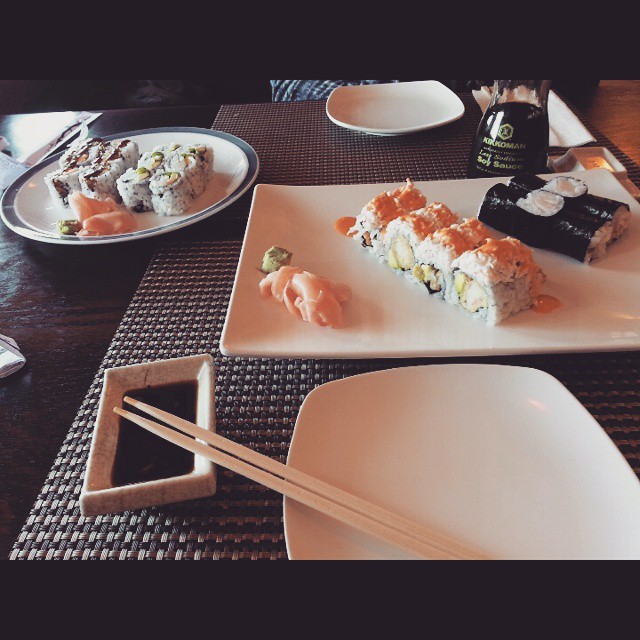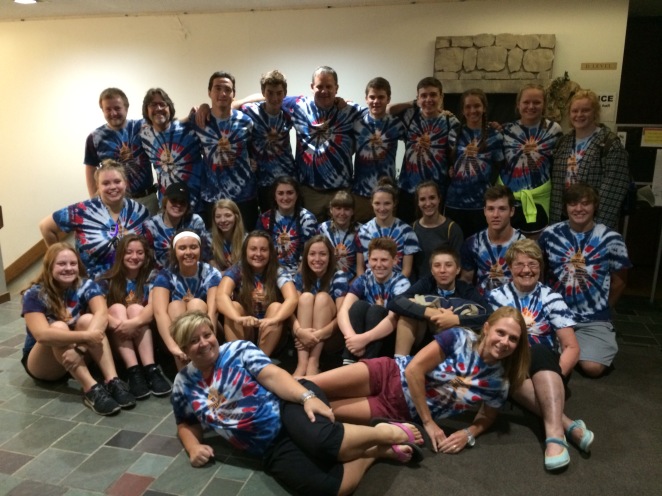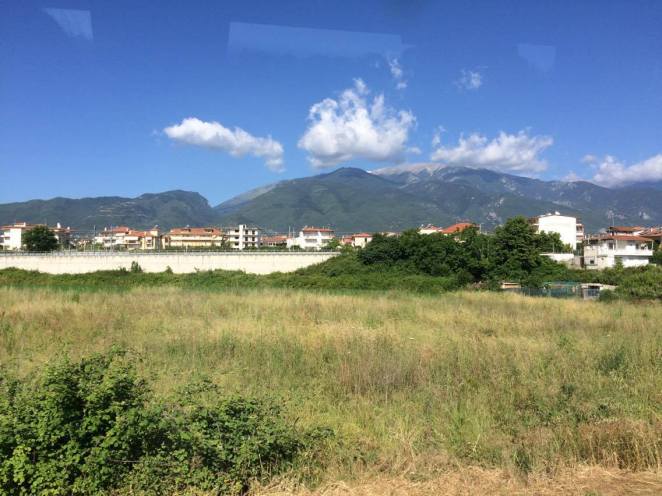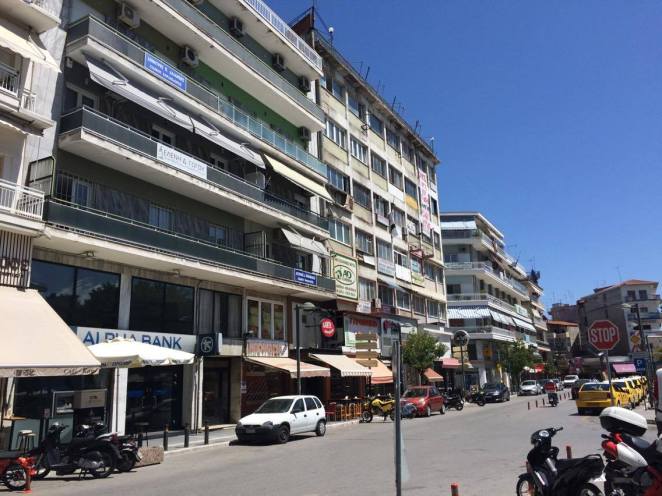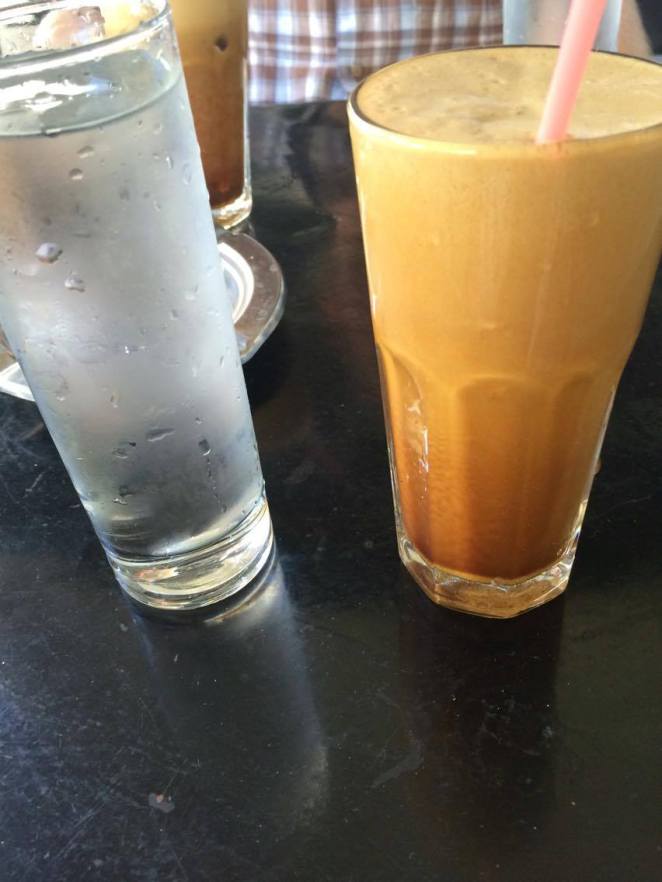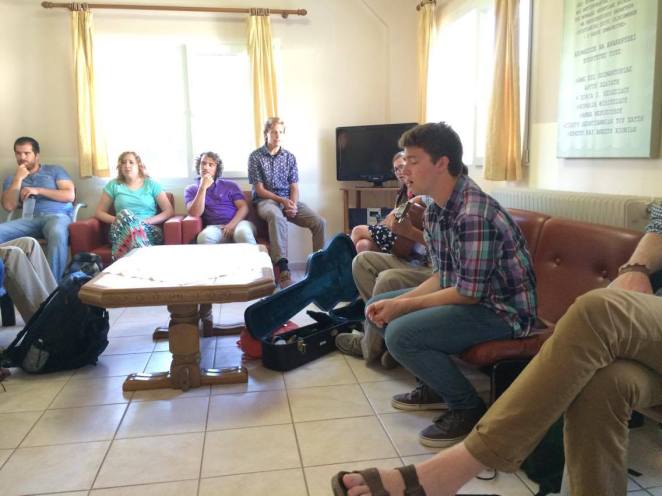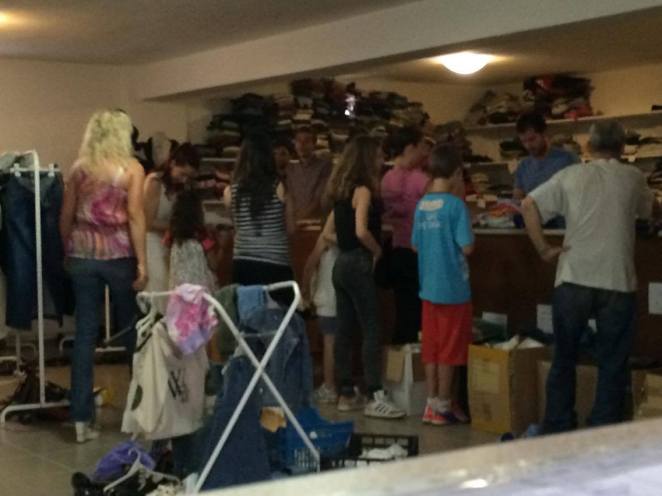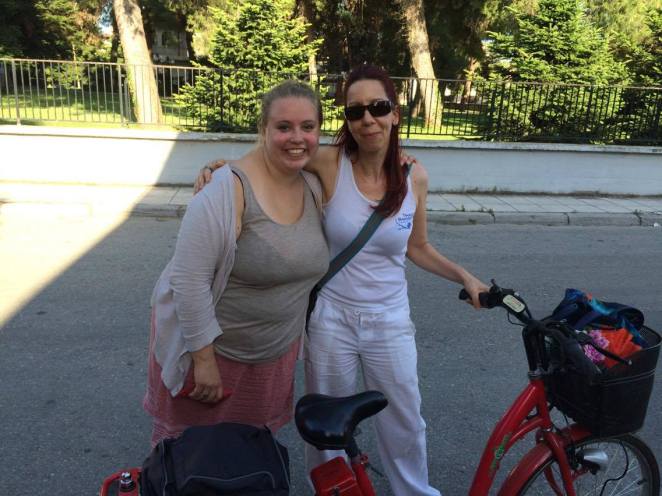In order to finish up our cross cultural studies class, we needed to turn in a reflection paper–trying to fit a month’s worth of thoughts into an eight to ten page paper–oy. Enjoy some thoughts. I’m so glad to be back in the states, but I’ve learned a lot…travel bug has got me though.
“Don’t forget us” Anna said, as she handed me a little red, quilted bag with a green bow. As the tears started brimming, barley held back by my lashes, I nodded, hugged her, and walked away. Walking away was probably the hardest part about the time I spent in Greece—walking away from the Syrian Refugees, from the Benjamin organization, from the economic crisis, from internal struggles, from the Meteora monasteries, and ultimately, walking away and leaving Greece. After three weeks, I’m walking away, realizing two things: first, America is a Rich and Stupid, Fat and Naive country in comparison to most of the world, and second, despite all which is going on in Greece, their country is Poor and Learned, yet still Thin and Joyful.
My reason for picking the metaphor of walking away is this: when walking away, there’s a choice to be made: what will you do with everything you’ve walked through and alongside? Where will you stand? And where will you go?
What Will You Do—What Have You Learned?
Although Greece is considered to have a Parliamentary Republic government, where various branches of government oversee specific aspect of the country and report back to the head, it is still loosely connected with the communist government. Initially this was surprising—communism is supposed to be a bad thing, right? After mulling this over for a while, I approached a few locals we had the opportunity to interact with, regarding why they were okay with having a communistic government. “Leadership” I was told time and again; considering Greece’s history both in military and economy, there has been a been a lack of firm leadership and direction. With a communistic approach to government, the title and role of leader is clearly defined and executed—there’s no question who is in charge and calling the shots.
Religion has a different feel in Europe—many people are culturally religious, meaning, if a country has a religious affiliation, then by default, a citizen will take the title of a particular religion as part of their identity. Being one of the Biblical Land, Greece’s religious history is rich, packed deeply with stories, landmarks, and artifacts reflecting the importance of tradition which have been held for centuries. There is a strong following of Greek Orthodoxy, a little less personal, and more traditional, faith practice; this surprised me, considering the overwhelming gathering of biblical sites within Greece. The combination of history and sites made the New Testament come to life for me—walking through the ruins of Phillipi, climbing up Mars Hill, seeing the Temple of Aphrodite, how could the scriptures not come alive? All this being said, there is still a significant group of Evangelical Christians peppered throughout Greece. Up until recently, the Evangelicals were not exactly recognized by the state; they were considered a sort of taboo people group, especially coming from a very traditional history of cultural religion. In recent years, however, the government has moved to recognize them, which has made it a bit easier for the Christians to live out their faith in their communities.
For most of our time in Greece, we traveled with a man named Costas, an Evangelical Christian working as a tour guide. Near the end of our trip, Costas shared his story with us, explaining how his faith had been a point of conflict within his Orthodox community and even more so in his family. In such a religious country, I was surprised to see how much undercurrent religious persecution went on.
One of the more striking elements experienced during our time visiting Greece was seeing how the economic crisis has impacted the country and people. From the moment we bored our plane from Germany to Greece, the decline in economy was evident. Giving dozens of examples of where it was clear to see how the crisis was impacting the economy would be easy, however, I will focus on only a few: the ruins, pick pockets, and locals.
Much of the time we were in Greece was spent wandering through archeological sites, learning about what went on at each place. However, despite the historical significance of each location, there was so much left undone and still covered. After making a comment to one of my professors about wanting to come back in ten years to see how much progress had been made on the excavation, he mentioned that not much will likely change in ten years, because of the insufficient funds available to continue the excavation process—I was surprised by this, it’s a biblical site, important to history, to the culture, and to Christians worldwide, why wasn’t this a priority to the country?
Further into our stay, we were warned to watch our wallets and cell phones—pick pocketing has become almost common place in Greece. With the lack of available jobs, businesses shutting down, and an influx of people migrating into Greece, petty crime has increased, mostly in thieving. I was struck particularly by one event while in Athens, seeing a woman get caught pick pocketing. From my journal, “After the rose ordeal was over, we went back to munching on our lunch when all of a sudden the owner of the resturant began yelling and roughly grabbed this woman. He was furious and the woman looked terrified. He dragged her over to a group of people and was shaking her a bit. All of a sudden he started hitting the woman. Being a bit more sensitive than I’d like to be to that sort of thing, I got angry and began yelling at the man—I was worried that he was going to hurt the woman. After smacking her several times, he shoved her away. It didn’t hit me until after the exchange, but she, a very well dressed woman, was actually a pick pocket, and he had caught her trying to steal from some of his customers. He explained that she was an immigrant to Greece and was preying on tourists in Athens. I felt pretty torn—in our culture, men don’t hit women, it’s frowned upon (and vice versa, women shouldn’t hit men. just be nice friends), but he was also trying to protect us. Who was at fault or wrong? He intended good for us, but still smacked her around quite a bit. The whole ordeal made me think about what is acceptable within culture—back home, the police would have been called, but here, the police are so relaxed, a lot of people take matters into their own hands. I ended up feeling thankful that the owner had an eye out for us, but still wasn’t sure how I would have handled the situation had it been me who caught her.” Previously, I would have assumed that maybe poorly dressed people or homeless children would be the ones steeling, not well dressed women—the whole encounter reflected something I hadn’t expected to see, especially in people who didn’t look the part: people do what they have to do to get by. After the encounter, I walked away from Athens with a different feeling about myself; although I’m a recent college graduate, still mostly broke, but I have a job, I see myself as maybe struggling here and there to keep my gas tank full, but to the rest of the world, I’m a wealthy white woman.
The final example which stuck out to me, more than the rest, regarding Greece’s economy was meeting some of the local young adults. Between the single women in their early and mid twenties who were being helped by the Benjamin organization, Dimitri, a twenty-six year old, at the Evangelical church, and a nineteen year old boy who introduced himself to me on Patmos, most, if not all, of them struggled to find work or hold down a job. Between the long hours, the shortage of jobs, and the suffering economy, paying bills was a challenge. Each of the individuals I met were competent, educated, and skilled, yet it was still very challenging for them to find work. This surprised me; back home, it has never been a challenge for me to find work, even before I had a degree or any experience. Vali, the boy who introduced himself to me on Patmos, explained that he was originally from Albania, but had come to Patmos to find work—although the island was beautiful and he had found some work, he really disliked bing in Greece, and wished to return home. My younger sister is nineteen—I can’t imagine her traveling to a different country for work. Overall, the economy in Greece was most memorable—it’s a domino effect, impacting everything in its wake.
Stemming directly from the economic struggle in Greece, it was easy to see how family life has been impacted. Being a collectivistic culture, the welcoming environment, generosity, and acceptance were evident, making my time there rather pleasant and comfortable, however, the quality of typical family life has gone down in the past several years. Children moving out of the country looking for work, parents having to work more years before retiring, and nearly every other business closing, the quality of family life just isn’t the same as it used to be. This was made more clear by observing the Benjamin organization—after hearing the stories from several single moms, recently widowed, it was a bit too real seeing how much the crisis had impacted families in Greece. I met one woman, her name escapes me, but I do remember she was twenty-five, had wavy, shoulder length hair, and very tan skin. Anna, the woman I mentioned earlier, told me that her husband was working a construction job, had a heart attack, and died on the job last year, leaving his wife and daughter alone. The was now working in the fields, trying to make enough money to support both her daughter and herself. It was amazing how much suffering these people were living through.
The final element we learned about in Greece was Education, yet another area the crisis had impacted. Being a nation which provides free education primary through university, funds for education were a priority, however, things like paying soldiers who were required to enlist in the army was not. Most of the people we met in Greece had gone through university level education, having at least one bachelors degree, but still struggled to find work. Even though education is free from primary (elementary) through secondary (high school) years, there are extensive tests which students must pass in order to go on to university. If a student does not pass the exams, they can enroll in private schools, which do cost money, to study and prepare to retake the exams. Education seemed to be fairly well rounded, covering all basic subjects, but stressing learning another language. It was almost uncomfortable coming into Greece, as a foreigner, only speaking English, and still having the locals cater to my ignorance. Initially I felt like a fairly well educated woman, but once arriving there, and being in the minority, I was humbled, realizing that there’s a lot more I really don’t know.
Where Will You Stand?—The Shift in Beliefs.
Rich and stupid, fat and naive—I’m coming back to the States feeling differently about America and the world than I did previously. After nearly a month oversees, my perspectives have changed significantly, more so than I thought they would. I’m coming back both disappointed yet thankful.
Rich. As stated earlier, recently coming out of college, oftentimes I feel like a broke graduate, just starting to bring in pay checks, paying off any debt, and trying to figure out what my next step is—but sometimes I still feel pretty poor. This was probably too much of an inward view. Coming back from Greece, I’m feeling like a wealthy white woman, with way more money and possessions than I need. I’m still trying to figure out where the money for my next tank of gas is going to come from, but I know I don’t have to worry about where I’m living or where my next meal will come from.
Stupid. Something about being the minority for once had me feeling uncomfortable. As much as I try to blend in, having blonde hair, blue eyes, and skin which just tempts the sun to burn it, made it nearly impossible to blend in. Regularly in Greece, I had locals coming up and asking me where I was from and why I was visiting Greece. Often times, they’d guess I was from the Netherlands or Germany, but once they found out I was from America, something about the tone of the conversation would switch. In every conversation, I always felt catered to—not speaking any other language but English made me feel a little less educated than I thought. Locals were constantly catering to us, speaking English, calling sports by their American names, and giving us American examples to help us understand Greece better. Being in that position, and relying on the locals to cater to me, made me feel kind of foolish and humbled—there’s still so much I need to learn.
Fat. Maybe fat is a bad way to word it, perhaps comfortable could be a better word choice. There’s a sort of comfortability which I’ve developed living where I do; I’ve got a secure job, an education in my back pocket, money in the bank, freedom to practice my religion, family nearby, a culture I’m very okay with, and a not-too-wretched government (maybe exclude the election candidates though)—I’m comfortable where I’m at, there’s not really a need for me to change what I’m doing or where I’m at because I’m okay being status quo, but is that actually a good thing? I’m not so sure now. While in Greece, I was surprised to see how much the Greeks adapt to Americans and American culture, are attentive to what’s going on in our country, and are striving to learn more; it made me feel inadequate and lazy.
Naive. Perhaps one of the most shameful parts of the trip was being so unaware of what’s been going on outside my homeland. I knew there was a refugee crisis somewhere oversees, and the government was raising a stink about it somewhere near Washington, but I didn’t realize how close to home it actually was, or that the women and children suffering were not too much older or younger than I. Walking into the country feeling like I would be helping or making a difference was a bad idea—sure, maybe I have funds to share, or a couple hours to play with the Syrian children, but there wasn’t much of a difference that I was making, rather, it was the local church in Greece who was making the difference.
All this to be said, I’m feeling more unprepared walking away from Greece—unprepared for what the world has going on, and unprepared for what my next step is, because there is so much to be done.
Where Will You Go—So What?
Here’s where things can get sticky—I’ve been home for about a week, and it feels nearly impossible to begin processing what’s happened over the past month. It’s overwhelming to think about how much I’ve experienced. I could see how this could cause people to do one of two things: change because of what they’ve walked through or put it away and not deal with it because of how overwhelming it would be. In some ways, it seems like my view of the world has been turned upside down, but in other ways, I feel like my perspective has widened. Fitting a month’s worth of thoughts into one paper feels nearly impossible, but there are some important lessons I’ve learned which I’ll take with me as I move forward.
Be thankful. Lord only knows how ungrateful I’ve been, but maybe being in Greece was part of the humbling process. Meeting women my age in such different places in life than me was startling—how easily it would be to loose the security I have now. Coming home, I was thankful to have a job, to have a family in the same country, and a culture which I was familiar with. What ever happened to focusing on thankfulness—the glass being half full type of thing?
The idea of going into a collectivistic culture initially was exciting, putting our phones down, and talking with one another, living life with one another, was a great idea, at first. It made me realize how important relationships are: relationships should come before the clock, not the other way around. But parts of the collectivistic style intimidated me too; I had to be present, vulnerable even, people were in my bubble and personal space, and that was normal. I like people as much as the next extrovert, but I don’t like people in my personal space without an invitation first—don’t touch me unless we’re friends, and even then, I don’t like people crowding me or bumping into me. Maybe there’s something to the whole, putting your phone down and putting your hand on the should of the person next to you that I underestimated. As scary as it was the first week, I came to find the closeness and unity very healing. I stopped flinching when someone patted me on the back, I started hugging people more, and looking forward to being crowded together in small spaces—mostly, it’s a start. Having someone sit close to me stopped making my heart panic, and instead I learned to value to intimacy of friendship—it breaks down barriers, you know?
Despite my distaste for anything before eight in the morning, one of my professors last semester said something that I’ll never forget, “Make as much as you can, save as much as you can, and give as much as you can.” I don’t really remember anything else from any of his classes except for that statement and the example of generosity he set—frankly, I didn’t really like this professors, but his example challenged me in some crucial ways. Walking away from Greece, and starting to realize that I am actually very well off, it feels like I need to start being more mindful of how I can be generous, with both my finances and time. Perhaps the most convicting example of this was while interacting with the Benjamin organization. For about twenty euros a month, the organization can help feed and clothe children of in single-parent families; twenty euros translates to about twenty-five US dollars—I can spend twenty-five on lunch for myself easily. But what would my life look like if I invested that twenty-five dollars into the life and wellbeing of a child in Greece? Time will tell, but I think I’d like to be a financial foster parent connected with the Benjamin organization.
On a similar note, having three weeks away from my traditional classes, family, and work, I was able to reflect on the things that make me feel alive. For a while, I’ve been entertaining ideas of how my youth ministry interests might develop and evolve. I took time to explore some options—maybe one day I’ll work in an organization like Benjamin, or pursue being a house mom for run aways or struggling teens—time will tell, it’s in God’s hands.
Something which struck me funny was the idea of doing things for the novelty of it all. It’s very easy to be home and say things like, “oh yeah, we spent some time in a Syrian Refugee camp while in Greece, no big deal,” but when does novelty intersect with need and necessity? I found myself very relentless to return to the camp, and actually stayed home, partially for rest and recuperation, and partially because my heart wasn’t ready for that challenge. I don’t want to do things for the novelty of it all, things like sponsoring children so I get more Jesus-Brownie points—I want my intentions and motives to be pure. This caused me to think about the sort of things I lead my students through in youth group; am I fostering a mindset of novelty or of service from a pure heart?
A tangible challenge I was faced with while observing the culture was regarding learning, education, and awareness. As said above, I felt unprepared and inadequate walking into and away from Greece—there’s so much I don’t know, and so much I turn a blind-eye to. Between being a recent graduate, having the term life long learner drilled into my head for the past three years, and being in a very aware culture, I’m challenged to find more ways to learn and stay aware.
Finally, one of the favorite lessons I learned while being in Greece was the importance of sitting in coffee shops. As many of the locals do, sitting in coffee shops is simply a part of the culture. You meet for coffee, talk among friends, slow down, and do life together—or, you sit alone, reflect, and enjoy the solitude. Since being home, I’ve felt a bit incomplete without visiting a coffee shop every few days. Taking time to interact with strangers, and enjoy the quiet community of a cafe has become more important to me than I thought—the coffee just isn’t the same though, Greece wins this one. Taking time to slow down and be with people seems to be the bottom line. It would be much easier to pop a k-cup into my Keurig, curl up on the couch and read a book, but driving ten minutes to the local coffee hot spot means I’ll have to talk to strangers, overhear laughter, and meet new people—why is this scary, and should it be?
To conclude, I’m happy to be back home. I missed America and the culture I’m familiar with, however, the amount of change and growth which occurred over those three weeks in Greece were well worth the bit of internal discomfort. It was a call to step outside of my comfort zone from time to time, to put my feet in the water, and to walk a mile in someone else’s shoes.

































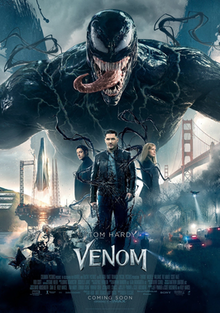
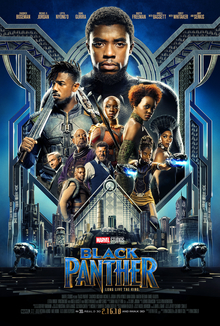
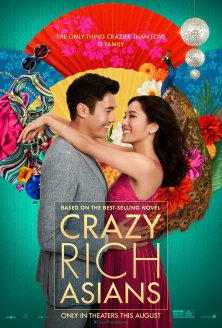
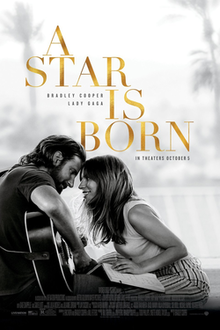
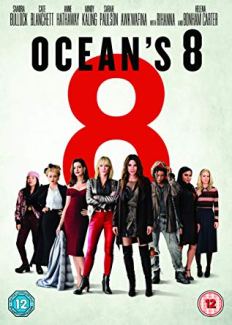

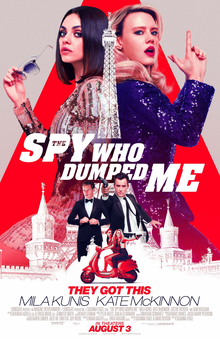
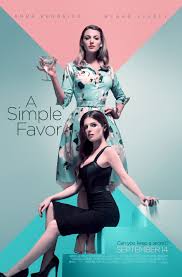
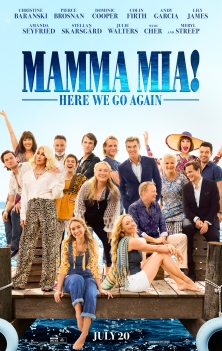
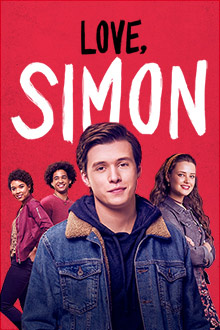















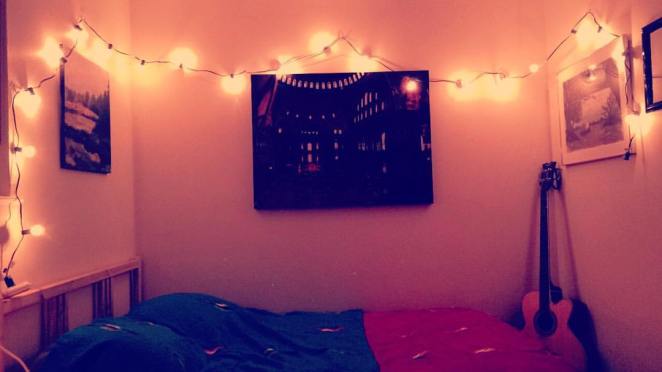
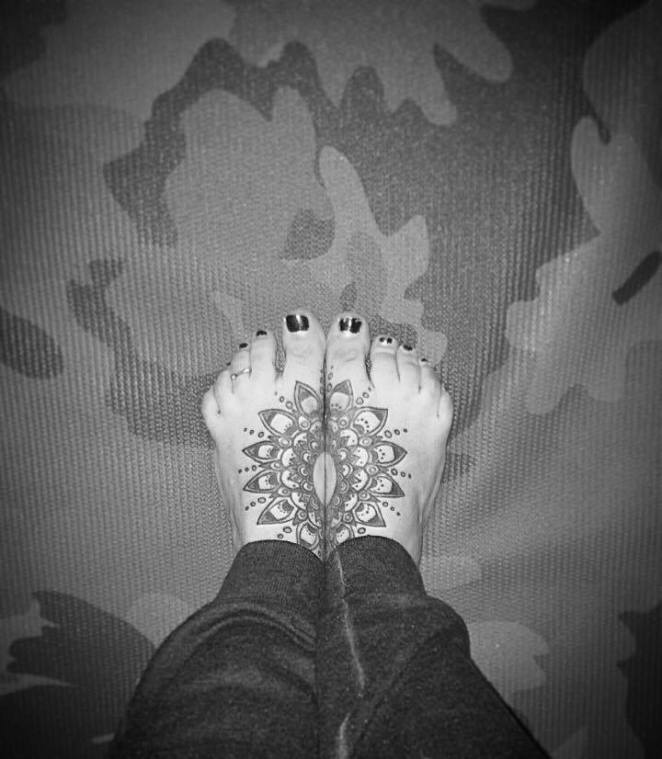
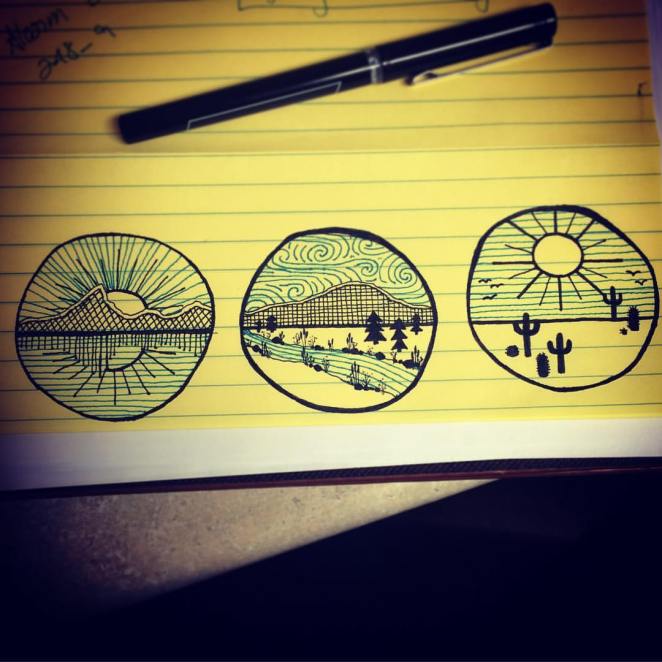
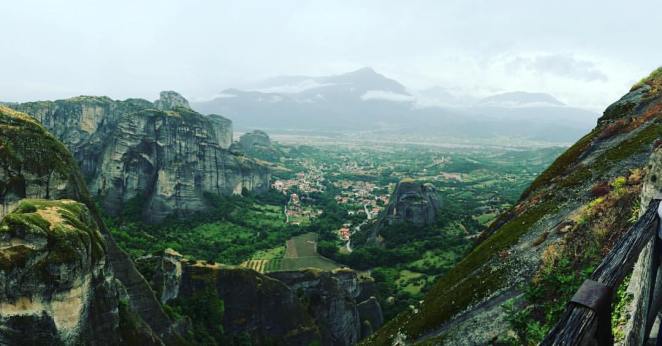 Reading – There is one thing in common with all of the people I look up to: they read regularly. Somewhere down the line I decided these people had qualities I admired, so I figured I best start reading if I ever wanted to be like them. Although back in the day I very much disliked reading, I’ve grown to quite enjoy it. Reading has been a positive and tangible way to relax and fill curiosity. This first summer post graduation, I took a break from most of the academic texts I’d been reading and switched to more artistic and creative literature. Not only was that season fulfilling and intriguing, it was also the boost of creativity and colors-outside-the-lines that I needed. After the summer months, I switched back into psychology, history, and sociology texts–these have been beneficial in evaluating my career path and passions. All in all, reading is a magnificent way to listen for a change. Taking time to read someone else’s thoughts, perspective, or expression can be both edifying and encouraging. Ask me what I’m reading, I dare you.
Reading – There is one thing in common with all of the people I look up to: they read regularly. Somewhere down the line I decided these people had qualities I admired, so I figured I best start reading if I ever wanted to be like them. Although back in the day I very much disliked reading, I’ve grown to quite enjoy it. Reading has been a positive and tangible way to relax and fill curiosity. This first summer post graduation, I took a break from most of the academic texts I’d been reading and switched to more artistic and creative literature. Not only was that season fulfilling and intriguing, it was also the boost of creativity and colors-outside-the-lines that I needed. After the summer months, I switched back into psychology, history, and sociology texts–these have been beneficial in evaluating my career path and passions. All in all, reading is a magnificent way to listen for a change. Taking time to read someone else’s thoughts, perspective, or expression can be both edifying and encouraging. Ask me what I’m reading, I dare you.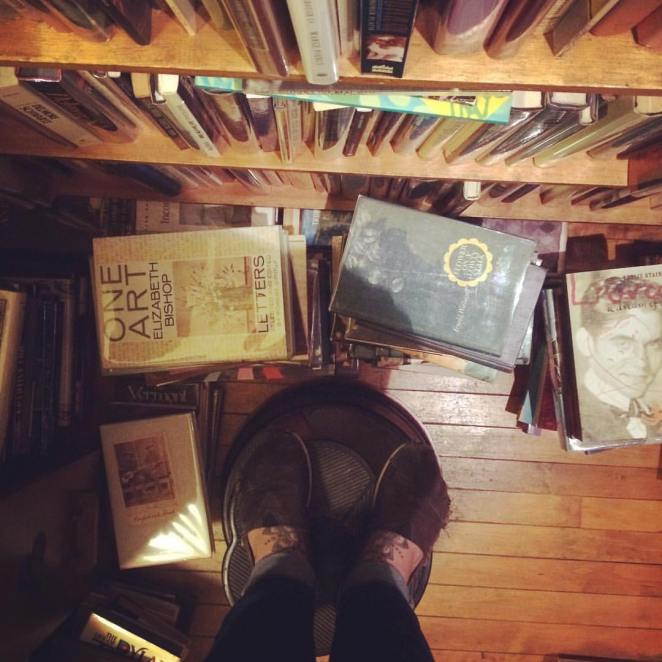
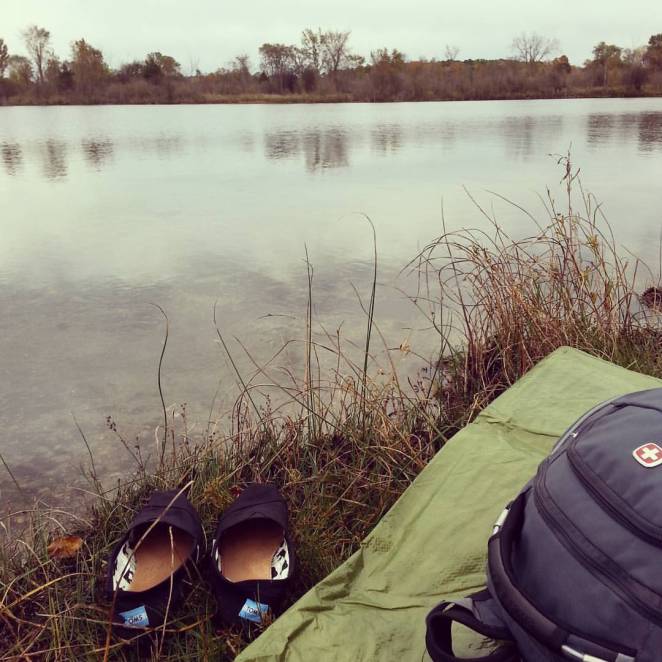
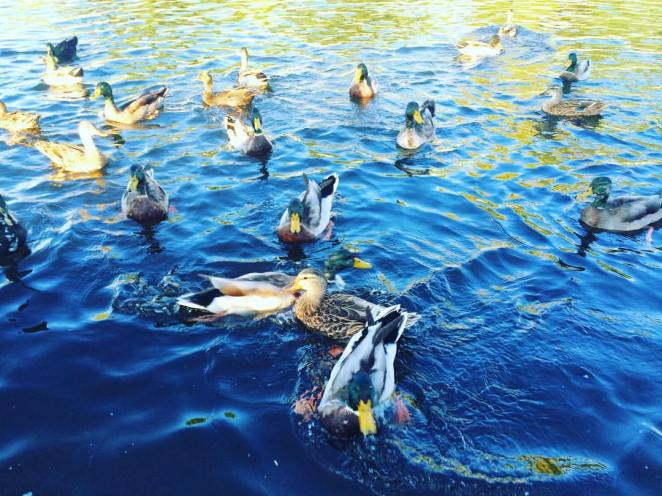
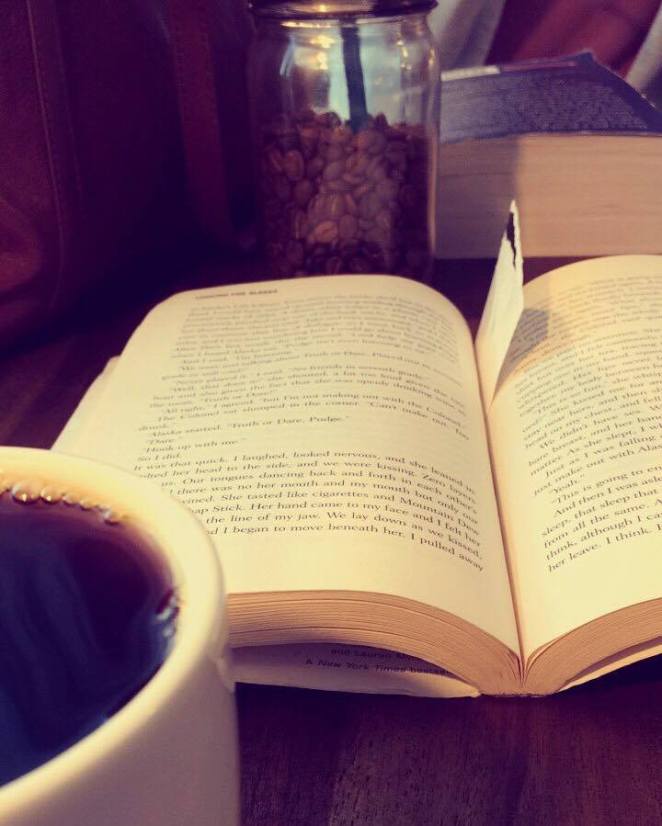 Disclaimer: I’m a work in progress–but it’s been a blast along the way. I don’t have it perfect, but I suppose the journey can be just as beneficial as the destination. Peace, stress-management, and health are key to enjoying life. Here’s to the future and the joys and sorrows we’ve learned from in the past.
Disclaimer: I’m a work in progress–but it’s been a blast along the way. I don’t have it perfect, but I suppose the journey can be just as beneficial as the destination. Peace, stress-management, and health are key to enjoying life. Here’s to the future and the joys and sorrows we’ve learned from in the past.
